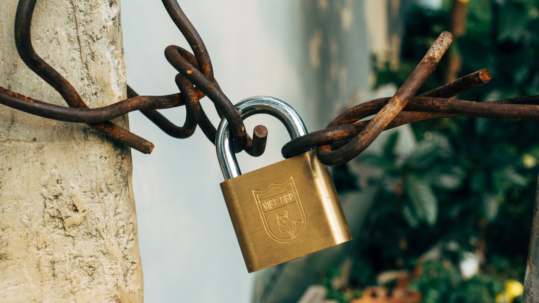
27 Nov My Experience With EMDR – Adventures in Counseling
Welcome
The following blog post is highly specific. For the person fighting an invisible battle and wondering if EMDR could help – welcome. It can be hard to know what might help and what might hurt on this journey towards peace, but I hope that by sharing my experience I can bring clarity.
And to the one who is researching for a loved one, or even just being a curious passerby – welcome to you too. I hope that by shedding light on the nitty gritty parts of counseling I can help you understand, and relate to, the struggle for mental wellbeing. I’m so glad you are here to learn more, and I hope that this article equips you with compassion and support for those around you. Sometimes, knowing that a friend has taken the time to pause and try to understand their experience is the best gift a friend could give in a season of hardship.
Context
I have been with 4 counselors over the past year, and in that time I have gotten first-hand experience with a wide variety of counseling techniques and methods. Some have been helpful, others have been harmful, but overall it has been a learning experience that I highly value. In the context of Eye Movement Desensitization and Reprocessing (EMDR), I have completed several sessions that varied in subject matter, delivery method, and counselor. Some sessions were exceptionally rigid and procedural, others were free-flowing and flexible. Some have used classic techniques, others have adapted to specific circumstances. I have completed sessions pertaining to three separate parts of my life, and each one has had very different results. In honesty, there have been times when I don’t believe EMDR was helpful in a particular instance, but overall it has been a tool that is either beneficial or neutral, not harmful. Along with talking about what EMDR is, as well as discussing caution for Christians, I’ll be highlighting two seasons where EMDR made an impactful and long-lasting difference.
The Basics of EMDR
Instead of being tucked away and remembered as a narrative (in the left brain), the idea is that traumatic memories are still unprocessed – they are packed with emotion and feel like they are happening right now (in the right brain). This is especially true in the case of Post Traumatic Stress Disorder (PTSD) where memories are vivid, harsh, and intrusive. These flashbacks feel like the event is happening all over again, and EMDR works to help get those memories processed and deescalated. To do that, counselors facilitate bilateral stimulation (engaging alternate sides of the body) by having the person tap alternating feet, watch a light go from right to left, or even hold paddles that vibrate in each hand while they think about the traumatic memory and surrounding emotions. Oftentimes the counselor will also work with the person to establish truth about the event, as well as building a positive framework for thinking about the event and its effects. It acknowledges the fact that it happened, while distancing the person from the immediate crisis-type nature of the emotions that accompany it. Unsurprisingly, we still don’t exactly know why/how it works, but it does. (You can learn more here). While PTSD and other trauma disorders are the most common for using EMDR, it is also used for anxiety, depression, and several other mental health conditions.
Is EMDR Ok For Christians?
One big concern in my mind in the early stages of counseling was wondering if it was wrong or dangerous for the Christian to participate in conventional therapy methods, EMDR being one of them. And after all my experience, I believe that it depends on how it is used. If the messages that you are establishing are messages that are self-sufficient (I am enough) as opposed to God-dependant (the grace of God is enough), or self-reliant (I can do the hard thing) as opposed to God-reliant (I can do all things through Christ who gives me strength), then that is reason for concern. Because ultimately we are sinners, in need of a savior. We are weak, He is strong. We have no hope apart from Christ, and yet with Christ, we have all hope. This world is not perfect, and it is the Lord who is our refuge in the midst of chaos. If the perspective that you are building 1) points you to Christ 2) is consistent with scripture, and 3) results in peace, then that is the sign of good fruit. A good tree bears good fruit. On the other hand, if the messages you are being rooted in points you to yourself for strength, are circumstantial, or distance you from Scripture/your relationship with God, it is cause for concern and needs to be reevaluated. I cannot stress it enough – find a counselor who has an active relationship with God – one who will help you navigate mental healing from a foundation of Truth – not fluffy messages of self-sufficiency or temporary comfort. EMDR is a tool, and it matters who is using it.
My Experience
The first time I did EMDR was to process a life-or-death experience about 4 months after it happened. It was a time in my life that was bathed in flashbacks and nightmares, and overall an intense level of hypervigilance and fear. Over video chat, I worked with a counselor to help process that experience through a series of maybe 8 EMDR sessions (and if I’m not mistaken, we did 2 sessions per appointment). It was structured and felt a bit rigid, but we gave it a whirl. The early sessions were focused on creating safe imaginative places, with positive messages toward myself. The idea was to create a mental safe place in case I got overwhelmed later, but overall I was uncomfortable and it felt awkward because of my hesitation. This was when I realized that it was up to me to decide where I was putting my hope. For example, instead of “I am safe” as my target belief, I decided to use “The Lord is my refuge and strength” and “I do not have to be afraid.” While subtle, this shift helped me keep the biblical perspective of faith despite trial. As believers, we are called to choose to trust God no matter what happens. Suffering and persecution are a reality of the fallen world (one that is naturally opposed to God). The next time I get triggered, I cannot guarantee that I will actually be safe. But I CAN guarantee that God will be with me wherever I am. God is my defender. He is my savior. He is my fortress and the rock on which I have built my life. By the grace of God, I live and breathe each day. So above safety, I value God being my refuge and strength.
Within each next session, we completed several series of 15-second intervals (bookended by a pause and a quick check-in) to think about the memory while patting alternating legs, and the rhythm allowed for me to dip in and out of the memory. I was slightly alarmed, yet it was doable. As I stopped avoiding the images in my head (and the feelings in my gut) I saw intense clarity of detail and sharp presence of mind, as if I was there again. I remembered more details than I had cared to, right down to the exact time on the clock, the way my shoes felt, and the textures that my fingertips felt at the time. But the permeating truth was that even though I was confronted by such intensity, I was in the refuge of my God – and he gave me strength to endure both then and now.
Some weeks I left feeling like the world seemed more vibrant and hopeful, while other times I found myself fighting worse mental battles. But as time went on, there was a noticeable decrease in the number and intensity of flashbacks and nightmares. I was impressed, but still dealing with a lot of my other symptoms (such as panic attacks, nausea, zoning out, etc). The journey continued, and throughout the next year and a half, I had several more EMDR experiences, other counselors, other therapy types, and varying results.
In recent months, I started with a new counselor who has been extremely helpful in discerning how to address deeper struggles. He is someone with a great deal of experience (30+ years) and a person that I respect, trust, and appreciate. His personal commitment to Jesus is a major building block of trust, and the depth of our spiritual conversations are oftentimes the most helpful in the overall journey towards healing. We occasionally use EMDR throughout the sessions, usually in response to topics that are difficult to talk about or that produce large emotional responses. He expertly balances hearing the words I have to say, with allowing me to simply feel the feelings that need to be felt. When we do EMDR, it creates a space for me to process without having to meet the demands of articulating the knot in my gut or the wildly vivid scene that is being re-lived in the backdrop of my mind. He reminds me, “the only way through, is through”. And he’s right. I hold the buzzing paddles and let my mind go after whatever it feels is pressing. We pause. I talk if I need to, or acknowledge how much I want to throw up, or whatever the case may be. And we continue. Wandering, and coming back. Wandering, and coming back. When I get overwhelmed, we pivot and we talk about something 100% unrelated. I’m learning that I don’t have to get sucked in to hours/days/weeks of darkness simply because I chose to remember. I am allowed to look at the memory and then decide to put it away. It doesn’t get to rule me.
In the midst of a particularly difficult session, he paused us.
“We’re not time traveling,” he tells me.
“No. YOU’RE not time traveling,” I fire back, in distress. Even though years had passed, the memory felt all-consuming.
“Look at the clock. It’s 10:43. It’s 2022. We’re in my office.”
Objectively, it’s true. We are ‘safe’ inside his office, on a blustery overcast Thursday in the middle of Wisconsin in the year 2022.
But that’s the unique nature of trauma, and exactly why it’s so necessary to process it. Instead of living the rest of my life avoiding and being triggered by the underlying vividness and fear, we are working towards freedom. Each and every session sucks. But each and every session has brought me healing that lasts. Healing that brings peace. And healing that empowers me to have a choice when I have previously felt at the mercy of my mind.
“I’m so glad you’re not there anymore, aren’t you?” He calmly says.
At the time, I dismissed it, because after all, it felt dismissive. I KNOW I’m not there anymore, but it still FEELS real. But in the days, weeks, and months since then, it is a phrase I frequently find myself repeating. “I’m so glad I’m not there anymore,” I reflect, “thank you, Lord, for bringing me through.”
Sometimes EMDR makes things worse. It stirs up the memories, causing escalated baseline stress, sleepless nights, difficulty eating, and other fight-or-flight responses. But it doesn’t leave you there. Like taking out a splinter, there might be pain, but the process allows for real and lasting healing. In the long run, the process has given me years of my life back. Entire seasons that I chose to forget are now thawing and becoming more approachable as I work through the surrounding emotions.
Final Thoughts
I know that God has called us not to live ensalved to the past, but rather to move forward in courage (Phillipians 4:6) and hope (1 Peter 1:13) and joy (James 1:2). Yet I also know that the lived experience of PTSD, anxiety, and depression, can be suffocating, all-consuming, and the fight can feel so very futile. God calls us to renew our minds, that we would not be conformed to the patterns of the world (Romans 12:2). EMDR was a part of helping me regain control of the chaos inside my mind, and establishing Christ-centered truths that renew each memory that has controlled me for too long. The fruit that I have seen has been good.
If you struggle with intrusive memories, EMDR is worth a try. Suppression-trigger-explode is not a healthy pattern, and I know what it’s like to feel stuck in the cycle. Healing comes in so many ways – be it through prayer, with time, with lifestyle changes, or with conventional medicine. Everyone has different experiences, but this has been a piece of mine, and I’m honored to share it.
-
Life and Worship in the Midst of Apathy
I am driven by striving. In one conversation with a Christian mentor, the words blurted out before I could properly weigh them: “Striving is what makes life worth living.” I wasn’t completely wrong, but I definitely wasn’t right either. A more appropriate statement might have been “Striving towards a goal is life-giving to me,” and yet with tears in my eyes as I grieved the loss of my ability...
06 August, 2023 Mental Health Random No comment 0 Likes -
Invisible Exercise – Poems of a Friend
This poem is written by none other than my sister and friend, Sierra Wied. Having lived our lives in beautiful connectedness, I am thrilled to be able to share her musings, and am proud of how she is pressing into God’s desire for healing and hope. Enjoy!...
24 May, 2023 Mental Health No comment 0 Likes -
My “Quick” Tips For Living With Mental Health Challenges
Mental health isn’t something that is solved with 7 quick tips from a young person on the internet. I get that. The complexity of a person’s story and the depths of the needed healing are not concepts that are lost on me, and the more I live my life, the more I realize how little I know about the human heart and mind....
09 May, 2023 Mental Health No comment 0 Likes






Pingback:Red Flags in Counseling - Kaley Faith
Posted at 18:07h, 30 March[…] seeing impressive progress with EMDR in the first few weeks in my experience with one counselor, there were still many things I needed […]
Pingback:Green Flags in Counseling - Kaley Faith
Posted at 18:27h, 30 March[…] There are awesome ways to work through traumatic memories without causing retraumatization (like EMDR!), but sometimes the process of pulling tough stuff from the dark and presenting it to the light is […]